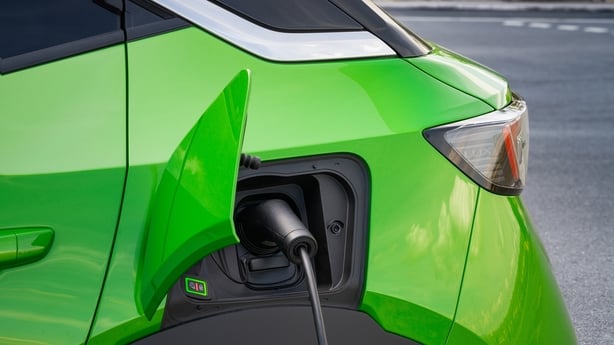The latest plug-in hybrid electric cars do not deliver on their claimed low emissions, says the transport lobby group, Transport and Environment.
The latest sales figures show that in January an appreciable number of new car buyers opted for plug-in hybrid vehicles - ones that allow usually a city range on electricity but have the back-up of a petrol engine.
It's an option many city dwellers chose ahead of going fully-electric and almost 2,000 of the 27,364 cars sold inn Ireland were plug-ins.
However, the European greener transport lobby group, Transport and Environment, has repeated its warnings that plug-ins are not delivering the efficiency claimed for them and say the new generation of plug-ins pollute "significantly more than claimed on city and commuter routes".
Two years ago T&E found plug-in technology polluted significantly more than advertised on longer routes. It says the new tests confirm beyond doubt that lawmakers should base taxes for PHEVs on their actual pollution and stop subsidising their sale.Now it has commissioned an Austrian technical university to test the latest generation of plug-ins and found that three new models emitted more CO2 when tested on the road, even when starting with a full battery.

It studied a BMW 3 Series, a Peugeot 308 and a Renault Megane. The BMW polluted three times its official rating when driven on a typical commuter route, according to the tests by Graz University of Technology.
"The Peugeot 308 and Renault Megane plug-in hybrids performed better but still polluted 20% and 70% more than claimed, respectively, despite the relatively short round-trip distance covered (55km)", the report says.'In city driving, the Peugeot had just over half (53%) of the advertised electric range on a single charge while the BMW had only 74%. Only the Renault had the electric range claimed. However, with just 50km on a single charge and no fast charging, the Renault’s zero-emissions use on commuter routes across European cities will remain limited’.
Anna Krajinska, vehicle emissions manager at T&E, said: "Plug-in hybrids are sold as the perfect combination of a battery for all your local needs and an engine for long distances. But real-world testing shows this is a myth. In city tests, just one of the PHEVs has the electric range advertised, while all three emit more than claimed in commuter driving. Lawmakers should treat PHEVs based on their actual emissions".
BMW has introduced new geo-fencing technology that automatically switches the PHEV to zero-emission electric driving in cities. However, when tested in the city of Graz, the BMW 3 Series switched on the engine twice.


